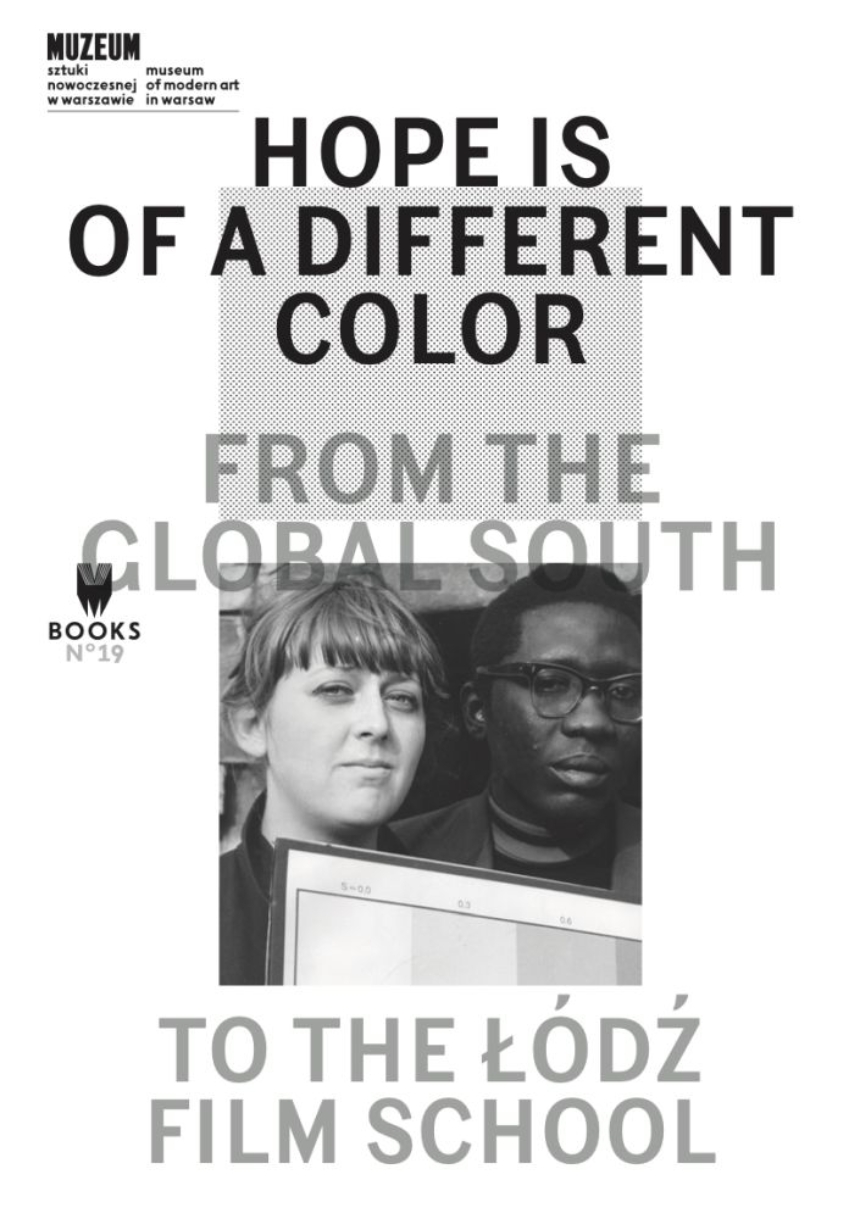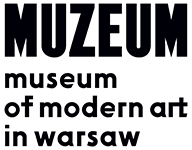Museum of Modern Art in Warsaw
Hope Is of a Different Color
From the Global South to the Lodz Film School
9788364177873
9788364177934
Distributed for Museum of Modern Art in Warsaw
Hope Is of a Different Color
From the Global South to the Lodz Film School
The history of film students from the Global South who studied in Poland during the Cold War.
As Poland’s second-largest city, Łódź was a hub for international students who studied in Poland from the mid-1960s to 1989. The Łódź Film School, a member of CILECT since 1955, was a favored destination, with students from Africa, Latin America, and the Middle East accounting for one-third of its international student body. Despite the school’s international reputation, the experience of its filmmakers from the Global South is little known beyond Poland.
Hope Is of a Different Color addresses the history of student exchanges between the Global South and the Polish People’s Republic during the Cold War. It sheds light on the experiences and careers of a generation of young filmmakers at Łódź, many of whom went on to achieve success as artists in their home countries, and provides insight into emerging areas of research and race relations in Central and Eastern Europe. The essays reflect on these issues from multiple perspectives, considering sociology, political science, art, and film history. The book also features previously unpublished photographs and film stills from private archives along with visual and written material collected at the Łódź Film School.
As Poland’s second-largest city, Łódź was a hub for international students who studied in Poland from the mid-1960s to 1989. The Łódź Film School, a member of CILECT since 1955, was a favored destination, with students from Africa, Latin America, and the Middle East accounting for one-third of its international student body. Despite the school’s international reputation, the experience of its filmmakers from the Global South is little known beyond Poland.
Hope Is of a Different Color addresses the history of student exchanges between the Global South and the Polish People’s Republic during the Cold War. It sheds light on the experiences and careers of a generation of young filmmakers at Łódź, many of whom went on to achieve success as artists in their home countries, and provides insight into emerging areas of research and race relations in Central and Eastern Europe. The essays reflect on these issues from multiple perspectives, considering sociology, political science, art, and film history. The book also features previously unpublished photographs and film stills from private archives along with visual and written material collected at the Łódź Film School.
Table of Contents
Introduction: From International Solidarity to a New Color Curtain—Magda Lipska, Monika Talarczyk
I.
Students from the Global South at the Lódz Film School, 1948–89:
Biographies
Extant List, Enrolled Students
Selected Film Stills
II.
Effective Solidarity with the Postcolonial World: Cold-War Educational Assistance from the Socialist Countries—Constantin Katsakioris
Students of Color and State Socialism: Can Double Exoticism Be Endured in Public Space?— Matthieu Gillabert
The Jew, the Arab, the Pole: March 1968 in Poland and the History of an Alliance Between the Second and Third Worlds—Monika Bobako
Unwanted Legacy, as Told by Its Witnesses: Arab Students in People’s Poland—Beata Kowalska, Inga Hajdarowicz
Cold War Internationalism: The Myth of Race-Blind Eastern Europe—Bolaji Balogun
Representing Africans in The Polish Review: A Projection of the PRL as Racism-Free—Bartosz Nowicki
III.
The Training of Third-World Filmmakers in Eastern Bloc Schools before 1991—Gabrielle Chomentowski
WE WANT THE SUN! Short Films by Lódz Students from the Global South, Compared with Models from Polish Art Cinema—Monika Talarczyk
The Familiar, the Strange: Works by Students from the Global South in the Context of the Polish School of Documentary Film— Katarzyna Maka-Malatynska
Podróz to Poland: In Search of a Potential Moroccan Cinema—Marie Pierre-Bouthier
Voices and Faces from the Third World—Olivier Hadouchi
Sao Gamba’s Creative Legacy in Kenya—Rachael Diang’a
IV.
“The Documentary Film in Eastern Africa: Sao Gamba’s Secret Legacy” (2009)—Jakub Barua
“The Cinema and I (A Black Filmmaker)” (July 1986)—John Alex Maina Karanja
Lesson 41: Going to Poland to Become a Moroccan Filmmaker—Léa Morin
Filmography: Student Shorts
Index
I.
Students from the Global South at the Lódz Film School, 1948–89:
Biographies
Extant List, Enrolled Students
Selected Film Stills
II.
Effective Solidarity with the Postcolonial World: Cold-War Educational Assistance from the Socialist Countries—Constantin Katsakioris
Students of Color and State Socialism: Can Double Exoticism Be Endured in Public Space?— Matthieu Gillabert
The Jew, the Arab, the Pole: March 1968 in Poland and the History of an Alliance Between the Second and Third Worlds—Monika Bobako
Unwanted Legacy, as Told by Its Witnesses: Arab Students in People’s Poland—Beata Kowalska, Inga Hajdarowicz
Cold War Internationalism: The Myth of Race-Blind Eastern Europe—Bolaji Balogun
Representing Africans in The Polish Review: A Projection of the PRL as Racism-Free—Bartosz Nowicki
III.
The Training of Third-World Filmmakers in Eastern Bloc Schools before 1991—Gabrielle Chomentowski
WE WANT THE SUN! Short Films by Lódz Students from the Global South, Compared with Models from Polish Art Cinema—Monika Talarczyk
The Familiar, the Strange: Works by Students from the Global South in the Context of the Polish School of Documentary Film— Katarzyna Maka-Malatynska
Podróz to Poland: In Search of a Potential Moroccan Cinema—Marie Pierre-Bouthier
Voices and Faces from the Third World—Olivier Hadouchi
Sao Gamba’s Creative Legacy in Kenya—Rachael Diang’a
IV.
“The Documentary Film in Eastern Africa: Sao Gamba’s Secret Legacy” (2009)—Jakub Barua
“The Cinema and I (A Black Filmmaker)” (July 1986)—John Alex Maina Karanja
Lesson 41: Going to Poland to Become a Moroccan Filmmaker—Léa Morin
Filmography: Student Shorts
Index

